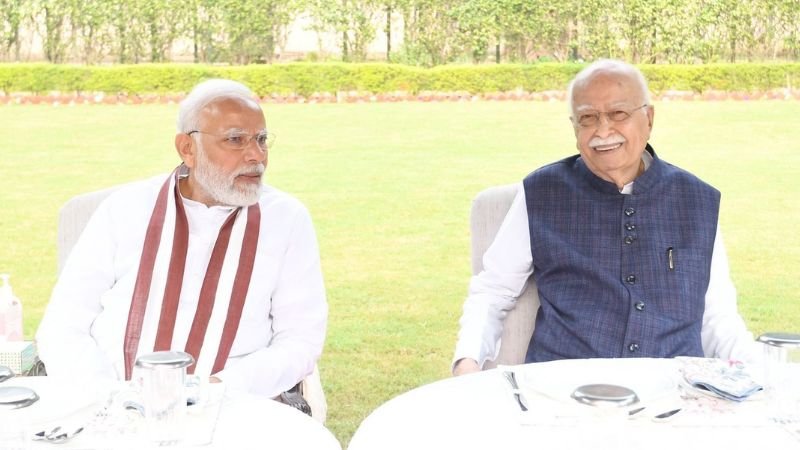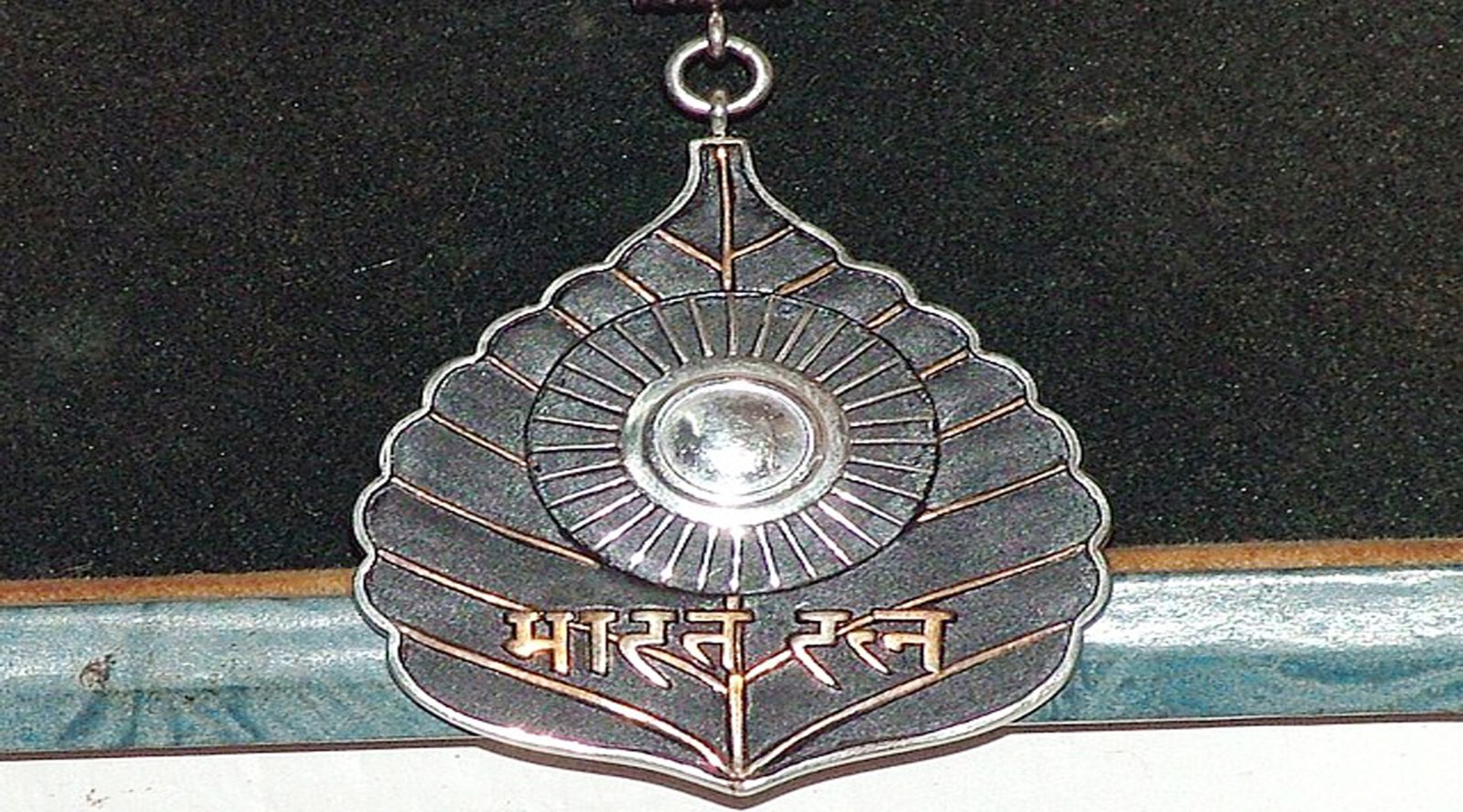By: M.R.Lalu
Bharat Ratna for L.K. Advani comes at a time when his party gathers its complete might to garner maximum seats and make a record hat trick comeback. The Bharat Ratna announcement was made by the Prime Minister himself to a roaring audience in Orissa while he was dedicating various development projects. The crowd, mostly stimulated by the declaration, sprang into an electrifying exhilaration. Decades of dedicated service by the strongman in Indian politics, the BJP patriarch, to his country was ultimately recognized. Again, the timing of the government’s decision has a queer value in it. Soon after the Ram Temple consecration and the general election at the doorstep is the juncture that Modi’s political acumen chose to make this profound announcement. There is no mistake in viewing that the highest civilian honor being conferred to L. K. Advani is a guru dakshina from his close confidant junior Modi.
For various reasons it has to be assumed that, Modi must have been waiting for the suitable moment to show his veneration to his guru in a big way, who, according to the Prime Minister’s words paved the way for his growth as a prominent political figure. Modi’s rise as a beginner in the Indian political context was cemented with the relentless support of L.K. Advani. The veteran chose to stand by the then Gujarat Chief Minister, who was accused of facilitating a coldblooded riot that exploded soon after the Godhra train carnage and bubbles of discontent began to fume from within the BJP. Narendra Modi was reminded what Raj Dharma was by Atal Bihari Vajpayee in his poetic vocabulary. But Advani’s firm stance in favour of Modi helped him continue in Gujarat with vigor and the rest is history.
The Ram Janmabhoomi Movement by the BJP was the basic plank that catapulted the party’s fortunes at national level. Advani could perceive his party’s aspirations fructifying by the Yatra that he undertook from Somnath in Gujarat to Ayodhya in Uttar Pradesh giving a stirring sense of Hindutva all the way through. That was the beginning of the saffron rise on India’s political horizon. Modi had accompanied the party veteran throughout the journey and Advani had experienced the depth of the Modi persona, his acumen to organize events and his farsightedness on the prospects of Hindutva based nationalism. The young leader from the RSS bandwagon remained intuitively focused organizing the yatra mostly as its backroom boy. Advani’s rath yatra could easily shoot up his party’s electoral tally from 2 to 84 seats in the Lok Sabha. He was instrumental in grooming a class of next generation leaders like Narendra Modi, Sushama Swaraj, Pramod Mahajan and Arun Jaitley in his party. And this could be exclusively seen as his organizational expertise gained as a pracharak in the RSS and the management lessons he was trained in. Karyakarta Nirman or grooming a worker is the term the RSS and his party call it.
Vajpayee’s strict gestures to sack Modi after the Godhra riots was easily contained by Advani and that was the personal alignment both the leaders developed from the beginning itself. Advani was the Home Minister when Gujarat sprung into flames. His government was accused of being passive and silent on the Modi administration in Gujarat. Advani visited the riot torn Gujarat in three days of the flare-up. His strong denial of the deliberate narratives that his political opponents flung calling the carnage a state orchestrated mayhem had helped Narendra Modi retain his chair. Modi’s subsequent victories in the state elections have effectively accentuated the standpoint of Advani and the former got enough breathing space to prove his blamelessness to the world that pelted stones at him unfeelingly. The year 2014 witnessed Advani’s gentle disapproval of him being sidelined and Modi being imported to Delhi as the face for Prime Minister by his party and the RSS. Modi’s benign gesticulation by pulling the veteran into the BJP’s Margadarshak Mandal was a well articulated pantomime but the opposition called it scandalous and cruel.
Though L. K Advani’s political shrewdness pushed his party through the dark days of Ayodhya movement and the subsequent destruction of the Babri mosque, when time came for the party to choose between him and Vajpayee, the latter’s statesmanlike softness and poetic oratory won him the preference. Advani remained a shadow man sailing the party ship through troubled waters while Vajpayee was projected as its captain. But between Vajpayee and Advani there hasn’t been even the slightest of disagreement on issues that in other parties, for instance, would have been exploding beyond measure while breaking them top to bottom. This culture of being united from the highest ranks of the party cadre to the grassroots gains the BJP a special recognition and separates it from other parties.
Modi’s entry to the national arena as the party strongman never disrupted this framework. Probably he could manage to glue the party and its functionaries into one political ideology, ‘nation first and party next’. L. K. Advani’s autobiography ‘My Country My Life’ is a sincere testimony of his political journey and he genuinely narrates his trepidation of being called a ‘traitor’ among the Sangh Parivar. Advani’s visit to Mohammed Ali Jinnah’s mausoleum in Karachi and his subsequent references to the man who forced the country’s dissection turned the political climate in India truly volatile. He was denounced for taking an ‘ideological deviation’ while betraying his party’s Hindutva stand. Another instance of volatility that he as a party strongman and the Home Minister in the Vajpayee government faced was the Kargil war. Pakistan’s menacing cross border assault at Kargil pushed India into an all-out war and the Islamic neighbor’s warmongering had completely toppled his government’s peace initiative that Prime Minister Vajpayee began by taking bus diplomacy to Lahore. Little did the journey to Lahore on 20 February 1999 fructify as both the countries vigorously began to bombard on each other and India won the war giving Pakistan a crushing defeat. Before the crisis began to penetrate further, India could show Pakistan its place and the BJP government’s audacity was lauded.
Interestingly, politics in India began to move the Modi way. The government’s announcement on Bharat Ratna to Advani came soon after the same was conferred to the socialist leader and former Bihar Chief Minister Karpoori Thakur. He remained a messiah of the backward communities. Diplomatically pulling Nitish Kumar to his side, Modi could systematically nip parallel narratives demanding a nationwide caste survey in the bud. This move by the Prime Minister is expected to consolidate votes from the backward communities in states where their strong presence defines the momentum. Modi’s conferring Bharat Ratna to Advani would preferably help him sustain his image as the Hindutva poster boy, an additional flavor to intensify his support base soon after the Ayodhya inauguration. The timeline of these events would evidently hold you appreciative of the Modi blitzkrieg making its final move before the election exhilarations begin. The pran prathishta and Bharat Ratna were significantly translating the long cherished dreams of Prime Minister Modi to actuality. The Bharat Ratna to the party patriarch is sure to escalate the level of jubilation in his party and the election results 2024 might add to its sweetness further. (The author is a freelance journalist who can be reached at mrlalu30@gmail.com)







